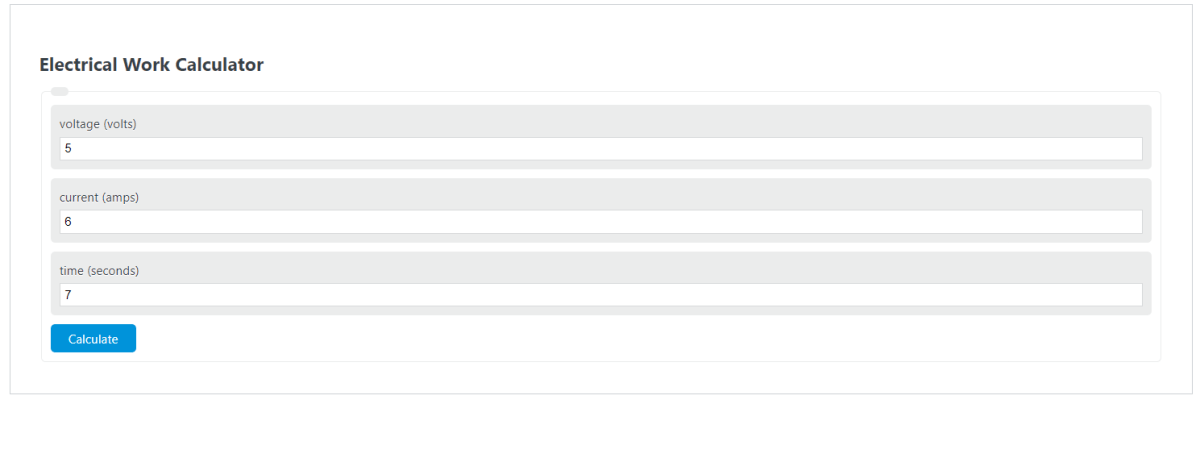Enter the voltage (volts), the current (amps), and the time (seconds) into the calculator to determine the Electrical Work.
- All Physics Work Calculators
- Total Work Calculator
- Spring Work Calculator
- Rate of Work Calculator
- Kinetic Energy To Work Calculator
- Output Work Calculator
- Velocity to Work Calculator
Electrical Work Formula
The following formula is used to calculate the Electrical Work.
We = V*I*t
- Where We is the Electrical Work (Joules)
- V is the voltage (volts)
- I is the current (amps)
- t is the time (seconds)
To calculate electrical work, multiply the voltage, current, and time together.
How to Calculate Electrical Work?
The following example problems outline how to calculate the Electrical Work.
Example Problem #1
- First, determine the voltage (volts). In this example, the voltage (volts) is given as 75 .
- Next, determine the current (amps). For this problem, the current (amps) is given as 6 .
- Next, determine the time (seconds). In this case, the time (seconds) is found to be 3.
- Finally, calculate the Electrical Work using the formula above:
We = V*I*t
Inserting the values from above and solving yields:
We = 75*6*3 = 1350 (Joules)
FAQ
What is electrical work?
Electrical work is the amount of energy transferred by an electric current through an electrical potential difference. It is calculated by multiplying the voltage (in volts), the current (in amps), and the time (in seconds) the current flows.
How do you convert electrical work from Joules to other units of energy?
Electrical work is typically measured in Joules, but it can be converted to other units of energy, such as kilowatt-hours (kWh), by using conversion factors. For example, 1 Joule is equal to 2.7778 x 10-7 kWh.
Can electrical work be negative?
Yes, electrical work can be negative. This occurs when the direction of the current is opposite to the direction of the electric field or voltage. In practical terms, this means the electrical system is doing work on the surroundings, such as charging a battery.
